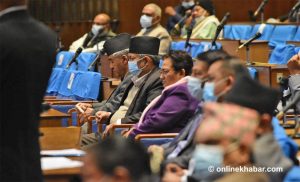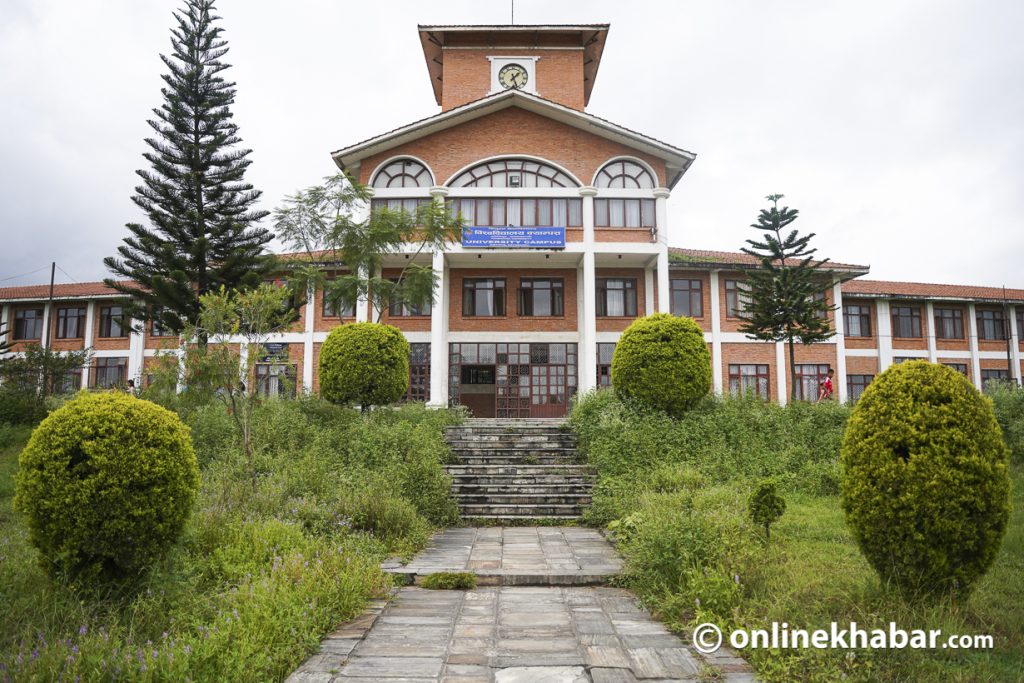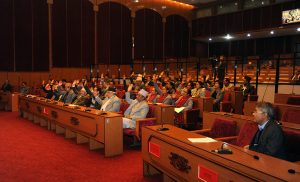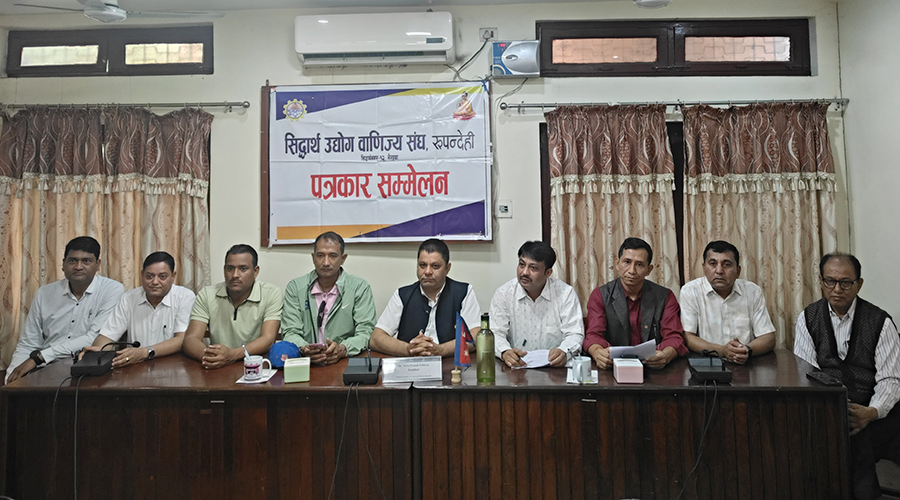
During the first official meeting of parliamentary committee chairpersons on August 30, Speaker Dev Raj Ghimire and Deputy Speaker Indira Rana Magar brought up the issue of implementing the decisions made at the parliament.
During the meeting, the chair of the Agriculture, Cooperative, and Natural Resources Committee, Arzu Rana stated how she had held discussions with previous chairs who told her how the government rarely acted on the decisions made by the committee.
The chair of the Industry and Commerce and Labour and Consumer Welfare Committee Abdul Khan also had discussions with several former committee chairs. He said that they expressed similar concerns, and this has left him disheartened.
“What is the point when the decisions we make are not implemented? What is our role,” he said in the meeting.
This issue has been made clear by a recently released study – Parliamentary Monitoring Tools and Practices of Nepal. The study mentions that lawmakers themselves are the reason why decisions made by parliamentary committees are not implemented.
The study’s findings suggest that the effectiveness of the parliamentary committees hinges on the capabilities of its members. With Nepal’s parliament not implementing decisions made by the committee members, which is led by astute parliamentarians, the study has raised an important question – How capable are our lawmakers?
What do the reports show?

On November 17, 2021, a five-member study committee was formed under the coordination of Sudarshan Khadka, secretary of the Federal Parliament Secretariat. The committee studied the parliamentary monitoring tools in the United Kingdom, the United States of America, and India and the methods practised by Nepal since 1959.
The report clearly states that a substantial number of instructions issued by parliamentary committees to the government have not been put into practice. That said, it does add that the current committees should be more effective than the previous committees.
This is not the first time this has been highlighted. The annual reports of the parliamentary committees have time and again stated the lack of implementation of the decisions taken by the parliamentary committees. According to its study, there are three reasons why the instructions of the parliamentary committees are not being implemented in Nepal.
The first barrier hindering the implementation of committee instructions lies in their foundation on insufficiently researched objectives. The second factor is the absence of proper coordination and extensive deliberation with pertinent stakeholders, intellectuals, and researchers before issuing these instructions. The third challenge arises from irregularities in monitoring the execution of decisions.
Contrary to this, the Parliamentary Monitoring Tools and Practices of Nepal report presents a different perspective. The report underscores internal factors as the primary cause for the committees’ diminished effectiveness. It places responsibility on both bureaucrats and lawmakers who are members of the committee. Additionally, the report notes that the committee often deviates from its designated agenda and fails to adhere to prescribed mandates and procedures.
According to the study, one contributing factor to the committee’s struggles is that their scope of work is determined by the regulations of the House of Representatives. These regulations define their jurisdiction and outline their actions, which can sometimes limit their operational flexibility. Another complicating factor is that various committees may deliberate on the same issue, resulting in different sets of recommendations. This diversity of suggestions can hinder effective implementation.
Committee members are also often led by or dominated by the ruling parties. This means these people will mostly defend the work of the government which has made implementing decisions even harder.
Subsequently, questions have been raised about the competence of the lawmakers and parliament employees. One of the identified reasons for the diminished effectiveness of parliamentary committees is the “lack of knowledge, skills, and abilities of committee members (lawmakers) and secretariat employees.”
Additionally, the report highlights another critical issue — the insufficient allocation of material, financial, and human resources to the committee. These factors collectively contribute to the committees’ reduced effectiveness.
The study emphasised intensive monitoring, evaluation on site, suggestions and instructions for improvement for the works that are carried out as per the annual budget and programmes by the government agencies.
It has been emphasised that the work carried out according to the annual budget and program by the government agencies should be intensively monitored and evaluated on-site and suggestions and instructions should be given as needed for improvement.
What are the problems in committees?

The study has pointed out that there is a tendency to ignore jurisdiction among parliamentary committees and they do so to gain popularity among the public. An example of that can be how various committees wanted to be involved in the Kathmandu-Tarai fast track issue, the Covid issue and the border diple issue. The committees had their discussions on the issue and gave instructions without knowing if they could do so or how their decision would be implemented.
Another problem that the study shows is committees being ignorant of on-site monitoring. It states on-site monitoring efforts fell short of expectations due to several factors. These include inadequate preparation before embarking on the monitoring visit, rushing through the monitoring process, an inability to establish a consistent monitoring routine, and a failure to engage in comprehensive discussions with all relevant stakeholders. These shortcomings collectively contributed to the suboptimal outcomes of the on-site monitoring.
Lack of coordination between committees and relevant stakeholders is another issue, says the study.
Som Bahadur Thapa, a former secretary at the Parliament Secretariat questions the practice of selecting the leadership of parliamentary committees.
“The committee chair should be selected based on ability but most are chosen based on the parties they represent. This will never allow the committee to be run smoothly,” said Thapa.
Thapa says most lawmakers go to these meetings without research. These lawmakers then ask irrelevant questions wasting everyone’s time and making it difficult for all involved.
“Only 30 per cent of those who are part of these committees are well-learned. The rest argue with no knowledge,” says Thapa. “If everyone was capable and came prepared for these meetings, things would be a lot different.”
How to improve?

To improve the situation, the study suggests that the parliamentary committees should make an annual calendar to carry out the tasks under their respective jurisdictions. It adds that in the case of an emergency, the parliamentary committee should proceed only after ascertaining whether the subject matter is within the jurisdiction of its committee or not, to avoid any duplicity.
Former General Secretary of Parliament Secretariat Surya Kiran Gurung says that the leaders of the parliamentary sub-committees should lead from the front and be in the know about the issue they are tackling.
“The recent electricity bill was a good example of how clueless our lawmakers are. They did not address the things that needed addressing which shows how ignorant they are,” said Gurung.
Gurung says whoever is in the leading role should be able to have the mindset to listen to criticism and move forward with it.
This story was translated from the original Nepali version and edited for clarity and length.
























